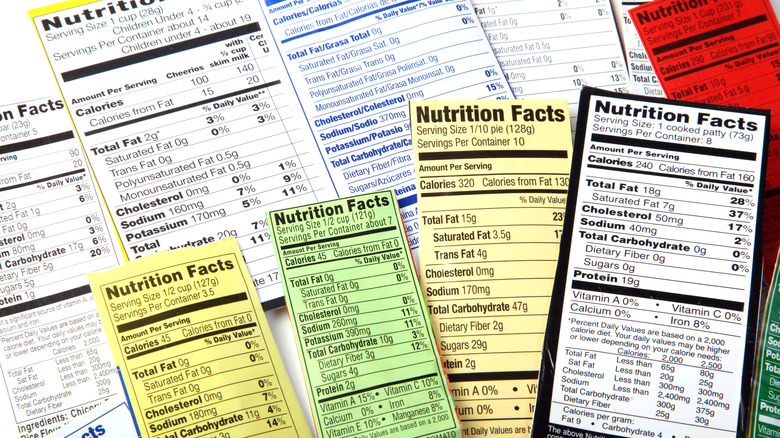What You Need To Know About Aldi's Latest $10 Million Lawsuit
When a consumer buys a product, there is an expectation regarding the ingredients on the label. If the label misrepresents those ingredients as required by a statute or regulation, consumers can seek redress for the error. On May 30, plaintiff Deana Lozano filed a contract, product liability lawsuit against Aldi USA, Inc. in the U.S. District Courts, California Central District Court.
According to a June 2 Newsweek report, the pending litigation asserts that "Aldi's packaging violates several California codes." Although the article does not state the particular code violations, it appears that the allegation stems from the use of "no artificial flavors" and "naturally flavored" terminology on the fruit and grain bars' packaging. It can be assumed that the complaint details potential ingredients that violate the food labeling codes. Newsweek reports that the plaintiff is requesting $9,990,000 in damages for all of the class action members. The amount reflects a figure for the alleged multiple year code violation as well as "unjust enrichment" the corporation supposedly received from the product's sales.
Lozano is represented by Charles C. Weller. It appears that the plaintiff has two other pending court cases against food corporations. In May, Lozano filed a class action lawsuit against the Kellogg Company asserting a false advertising claim regarding the natural flavor label term on its Nutrigrain breakfast bars. And in 2021, Lozano filed a class action case against Bowmar Nutrition that questioned the labeled versus actual amount of protein contained in its products.
Food labels are meant to inform consumers
According to the California Department of Public Health's Food and Drug Branch, "the goal of food labeling is to provide consumers with information that is factual and relevant about the products they consume." While that statement seems relatively straightforward, certain terms can benefit from more clarification. Although flavor, as a taste, can be subjective, the term has particular guidelines under the statute.
Under federal regulations, flavor that comes from a non-natural source should be referenced with the term "artificial." Any substance that does not come from sources such as spices, fruit juices, meat, and others as listed in the regulation should be noted by using the term. While the term "natural" and its interpretation can be debated, the purpose of these regulations is to inform the consumer.
In recent years, plaintiffs have filed actions against companies regarding the use of the word "natural." For example, litigation against Publix and General Mills questions the ingredient malic acid and whether that use triggers the term "artificial" or "artificially flavored" to avoid consumer confusion. Although each claim is different, the underlying goal of these regulations is to better inform consumers regarding ingredients. In the food labeling world, superlative terms might draw people's attention, but the ingredient description should not deviate from the actual elements in the product.

